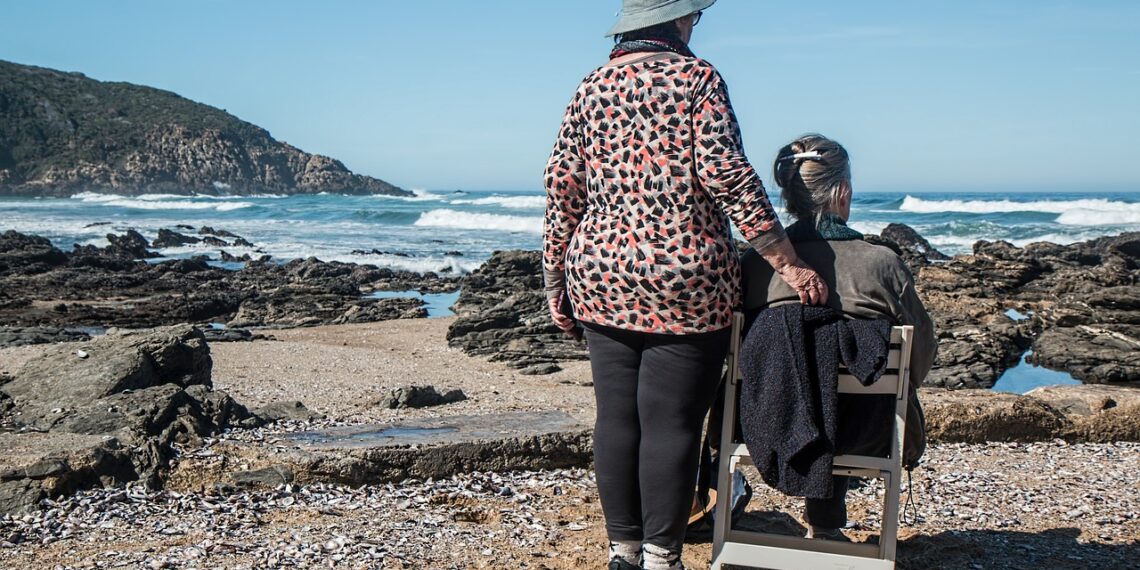As life expectancies increase, medical treatments advance, and increasing numbers of people live with chronic illness and disabilities, more and more of us find ourselves caring for a loved one at home. Family caregivers play a key role in caring for chronically ill older people. Although neighbours and friends may help, about 80% of help in the home – physical, emotional, social, and economic – is provided by family caregivers.
Elderly care is an extremely demanding job and can also tend to be overwhelming for senior caregivers. And like many family caregivers, you probably never anticipated this situation. You don’t have to be a nursing expert, a superhero, or a saint in order to be a good family caregiver, however, your responsibilities will ultimately depend upon your loved one’s health and needs.
Often, this role is taken on naturally and most family elderly caregivers do not consider themselves as such. They consider that the regular care they provide to the elderly person is part of their role as partner, daughter, son, sister, brother, etc. Nevertheless, when there is a significant loss of autonomy, this role represents a considerable set of responsibilities that demand adjustments on personal, familial, social and work levels.
Your caregiver duties may vary each day, but some basic tasks remain the same when caring for an aging parent or senior loved one. Let’s take a look!
Table of Contents
Home Management and Planning
It can be tricky to know just how much of a commitment caregiving can place on others. One useful way to ensure proper coverage for all tasks is to create a care plan to manage the home and the health responsibilities. This plan should be created with the input of the family doctor, family members, and all those providing services. From this, a basic time and money budget can be devised to set proper expectations for care.
Assess Medical Needs
Checking on your senior loved one’s health is an important caregiver responsibility. You may need to help keep track of medical appointments, manage medications and chronic conditions, or assess pain levels. It’s a good idea to discuss your loved one’s health with their doctor and other health professionals regularly.
Help with Personal Hygiene and Care
For many elderly loved ones, help is only brought in once they start having difficulty with the more intimate tasks of daily life, known as the activities of daily living. Getting assistance with bathing, using the toilet, cleaning up after being sick, or washing and combing their hair can be a necessary step for aging in place. Since it’s a delicate topic, be kind-natured and patient. You’ll also want anyone handling hygiene care to have a good track record for working with the elderly.
Provide Companionship
One of the most essential but sometimes overlooked parts of caregiving is companionship. Feelings of loneliness in older adults can lead to serious health consequences including depression. When you care for an aging loved one, you are creating opportunities to strengthen your bond and connection.
Help with Mobility
Whether it’s learning to properly move someone from the wheelchair to toilet or noticing the signs of someone at risk for a fall, the skills a caregiver needs to ensure safe movement both inside and outside the home are vital. Proper “transfer” methods are needed to avoid injury to both the caregiver and the senior loved one. Caregiving can be hard on the body of the person helping, and the right knowledge can prevent painful mistakes later.
Monitor Medications
Older adults often take several prescription medications to treat chronic conditions. Your loved one may need help keeping track of their medication list, understanding drug interactions, and taking prescribed dosages at the right time. You can help lower your loved one’s risk of overmedicating by creating reminder systems and monitoring his or her medications.
These are just some of the roles and responsibilities that a family senior caregiver will have to take on when looking after their elderly loved ones. Like we mentioned earlier, caregiving duties are not easy and require a lot of patience. That being said, while you – as a caregiver – are caring for your seniors, don’t forget that your health is important too.
Caregiving can take both physical and psychological tolls on anyone, and many caregivers experience symptoms consistent with depression. Overwhelmed with their responsibilities, many caregivers forget to take time for themselves, which can lead to caregiver burnout. In such a situation, don’t feel shy or hesitate to accept outside help. Whether you opt for assisted living or respite care, make sure you look after yourself. Always remember, no one is invincible.
You can also use smartphone apps like Proxgy, which offers elderly care services. The Proxgy app takes care of things like bringing your medications and prescription from the pharmacy and also helps you by accompanying your senior loved one to their doctor’s appointments in case you aren’t available.
All you need to do is log on to the Proxgy user app, click on Proxgy for Elderly Care and your virtual avatar will be assigned to you, who will help you carry out some of your senior caregiving duties, so that you don’t have to take the entire load.
Remember – elderly care is important, but so are you!

